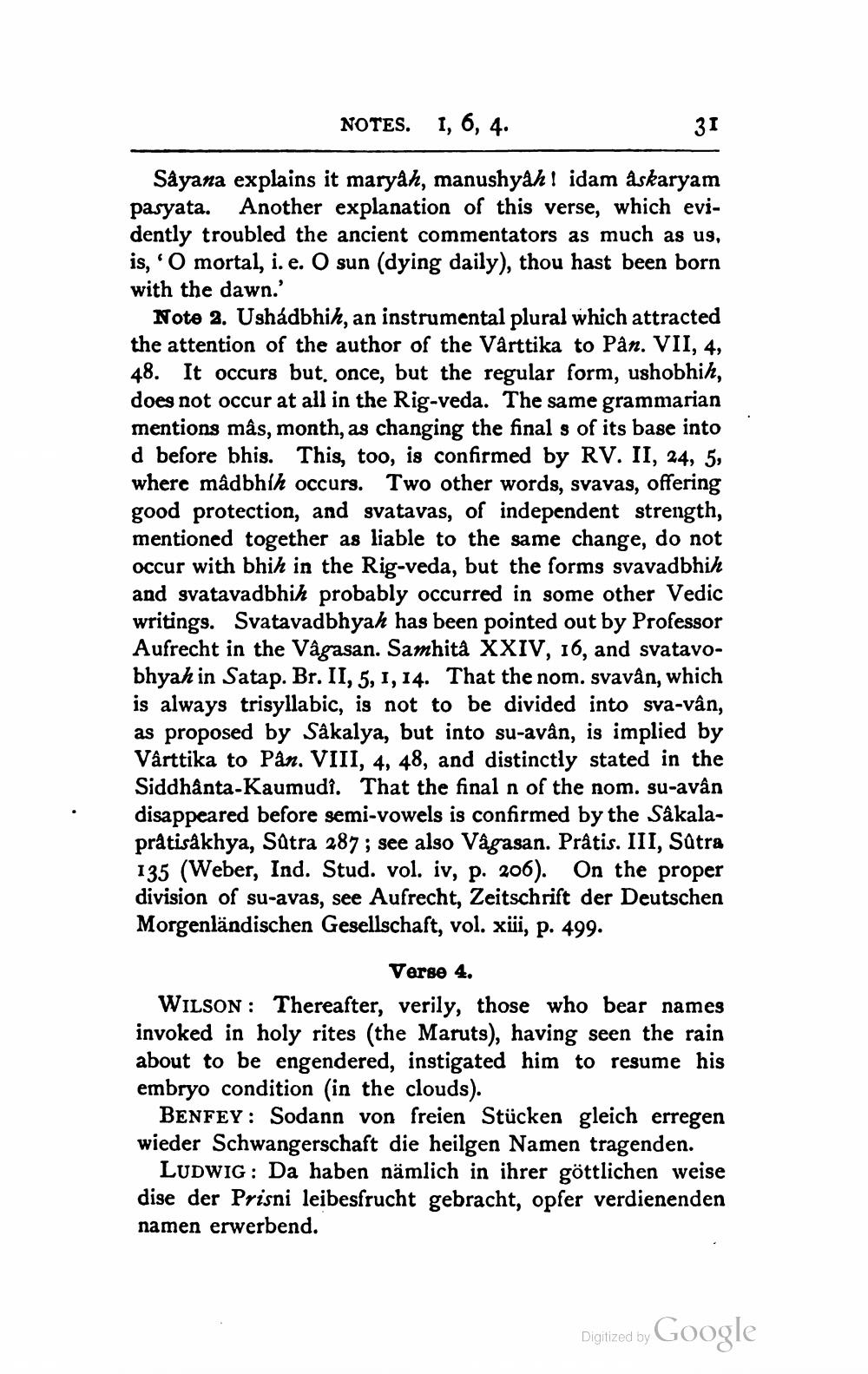________________
NOTES. 1, 6, 4.
Såyana explains it maryah, manushyah! idam askaryam pasyata. Another explanation of this verse, which evidently troubled the ancient commentators as much as us, is, O mortal, i.e. O sun (dying daily), thou hast been born with the dawn.'
Note 2. Ushadbhih, an instrumental plural which attracted the attention of the author of the Varttika to Pån. VII, 4, 48. It occurs but. once, but the regular form, ushobhih, does not occur at all in the Rig-veda. The same grammarian mentions mâs, month, as changing the final s of its base into d before bhis. This, too, is confirmed by RV. II, 24, 5, where mâdbhíh occurs. Two other words, svavas, offering good protection, and svatavas, of independent strength, mentioned together as liable to the same change, do not occur with bhih in the Rig-veda, but the forms svavadbhih and svatavadbhih probably occurred in some other Vedic writings. Svatavadbhyah has been pointed out by Professor Aufrecht in the Vâgasan. Samhita XXIV, 16, and svatavobhyah in Satap. Br. II, 5, 1, 14. That the nom. svavân, which is always trisyllabic, is not to be divided into sva-vân, as proposed by Sâkalya, but into su-avân, is implied by Vârttika to Pan. VIII, 4, 48, and distinctly stated in the Siddhanta-Kaumudi. That the final n of the nom. su-avân disappeared before semi-vowels is confirmed by the Såkalaprátisakhya, Sutra 287; see also Vågasan. Prâtis. III, Satra 135 (Weber, Ind. Stud. vol. iv, p. 206). On the proper division of su-avas, see Aufrecht, Zeitschrift der Deutschen Morgenländischen Gesellschaft, vol. xiii, p. 499.
Verse 4. WILSON: Thereafter, verily, those who bear names invoked in holy rites (the Maruts), having seen the rain about to be engendered, instigated him to resume his embryo condition (in the clouds).
BENFEY: Sodann von freien Stücken gleich erregen wieder Schwangerschaft die heilgen Namen tragenden.
LUDWIG: Da haben nämlich in ihrer göttlichen weise dise der Prisni leibesfrucht gebracht, opfer verdienenden namen erwerbend.
Digitized by Google




